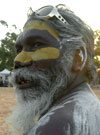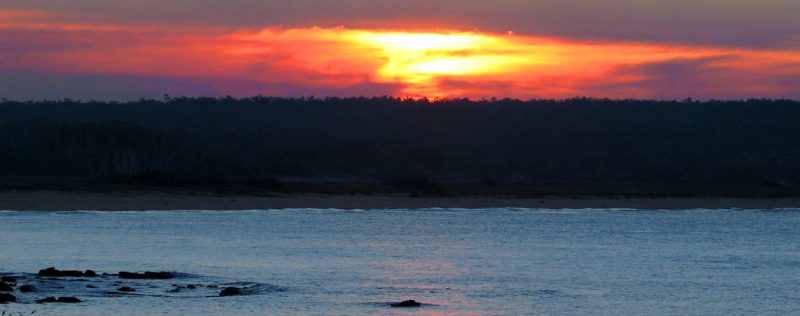
Concluding Statements from Yolŋu
Yow manymak. Goodbye, yidaki djämamirr walal (all you who practice yidaki). Yidaki djämami warra manymak (those who practice yidaki are good). Balanda ga Yolŋu (non-Aboriginals and Yolŋu). We are happy for you. We come to play together, sharing together. Yidaki like, eh? Miyalk balanda ga dirramu balanda (non-Aboriginal women and men). We’re happy for you to learn from Yolŋu. Didjeridu. Yidaki. We come together ga rrambaŋi djäma, work together, helping each other. Yolŋu ga Balanda. Yaka (don’t be) jealous each other. Yaka (don’t) put jealous in the didjeridu. Put happy in the didjeridu.
Yiḏaki is very, very important for our living and for our life and for our knowledge and wisdom. Because we haven’t started it. It was the spirit. That’s where… the spirit shows us. And they keep on showing us. We feel them through our manikay (songs) and through our didjeridu. We feel them. Rirrikay nhanŋu (their sound), the way they sing, the way they wait for our spirit to join up later on. So the spirit is here working and leading us. We are still listening to them. That is why we want our culture, our law, can be strong. And real strong, our culture will make the people strong.
Now let’s get together, so we will recognize each other. They belong to the world, and we belong to the world, here in Australia, Yolŋu. So can we share? They’ve shared already to us. They want us to share from here to them. So that is reconciliation. Passing knowledge to each other.
Everything’s all right, for the whole world to learn, eh? I’m not saying racist things to anybody about doing this and doing that, you can take this, although you can’t take that. But, you know, there’s the world here, and it’s open. Our instruments have been travelling, been touching the other world. Their heart, their mind, their soul, like that. And I hope that you can learn more about our yidaki and our systems. But then again, you’ve got to respect how, when women can respect also, how we believe. Okay? Thank you very much.
As you know, the yidaki, it’s all coming from a particular place, from Arnhem Land. Arnhem Land had tools, and that was the tools called yidaki and plus a stepping stick. It’s tools for those songs and it’s tools for that country. When you are using yidaki onto songs, you’re using both of them, yidaki and stepping sticks. The songs are all coming from the land, too, because we are using and naming all those countries. So what I’ll say… Remember us. The yidaki, it’s all coming from the Yolŋu, and Yolŋu been sharing the knowledge right across Australia and right across to overseas. But remember us.
Well, I just want to say that people should respect yiḏaki. Respect yiḏaki because of where it comes from. Where it originated. Don’t use it for bad reasons, you know? Respect it and don’t make fun of it, you know? Don’t make fun of it. Play it for fun, to entertain, to use it. Then keep it. And respect it always.
Compact Audio Player Error! The mp3 file URL that you entered in the "fileurl" parameter looks to be invalid. Please enter a valid URL of the audio file. Djalu’ Gurruwiwi

Ŋarru manymak, ŋarru dhaŋuyam bala ŋali ŋarru rom ŋarru bitjanaya goŋan. Ga bala nhumaliŋgu wekam ga räli ga buthuru-bitjun. Yaka ŋali ŋarru mä-yulkthunmin bayaya nhuma ŋäpakim warra ŋarru yaka mä-yulkthuwan rom’ma. Yalŋuwa ŋalma ŋarru malkarr waripum dhäya buŋgulŋa. Waripum ŋarru buŋgul join yolŋuwuli ga marriyuna yaka. Banham manymak.
It’s good, we will share our laws. You come here to listen, and we give to you. We shouldn’t mistrust each other. No matter if you’re not Aboriginal, you should respect our law. Later we will stand up together and dance with many spears. Others will join with the Yolŋu and dance. That’s good.














